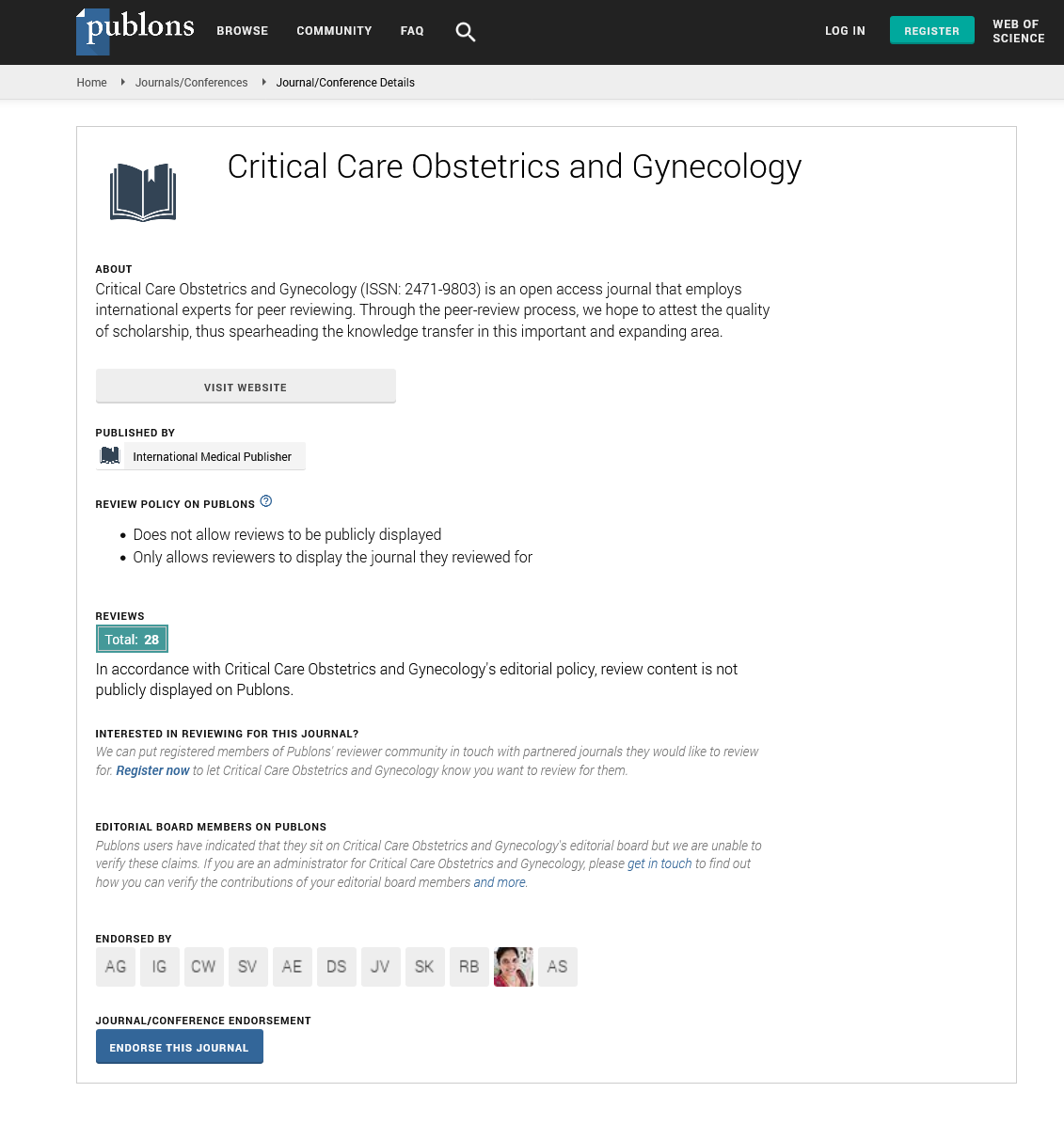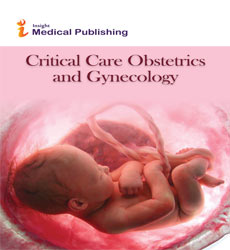Abstract
Complications of Hyperemesis Gravidarum; A Disease of Both Mother and Fetus, Review Article
Hyperemesis Gravidarum (HG) is the most severe form of nausea and vomiting during pregnancy and is characterized by severe intractable nausea and vomiting that lead to many maternal and fetal consequences. HG is mainly diagnosed clinically; most of the physicians diagnose it by its typical clinical picture and exclusion of other causes of nausea and vomiting in the pregnant woman. Nausea and vomiting are a disease of high prevalence among pregnant women and it is a common experience affecting 50-90% of all women. It is the most common indication for hospitalization during the first half of pregnancy. HG occurs in only about 0.5-2% of cases but actually, when it occurs it may be associated with morbidity of both mother and fetus. Adequate replacement therapy and weight gain may prevent most of the maternal and fetal consequences. Pregnant women with HG may suffer marked psychosocial burden. Moreover, the condition may be complicated by electrolyte imbalances, nutritional deficiencies, and Wernicke’s encephalopathy. Other complications include thrombosis, esophageal trauma, cerebral vascular spasm, others are related to TPN and central venous lines. Besides, recurrence of HG in subsequent pregnancies may occur.
Offspring of pregnant women with HG may suffer long-term conditions which include high serum cortisol, decreasing insulin sensitivity, high risk of mood and psychiatric problems. Studies showed no significant increase in the incidence of congenital anomalies among these neonates versus the control group. Regarding cancer, the large Scandinavian study found no association between HG and incidence of 12 types of childhood malignancies, only increased the incidence of lymphoma and testicular tumor was found which need further studies to confirm this causal relation. Besides, higher incidence of preterm labor, placental abruption, preeclampsia and small for gestational age were found in these patients. Further studies are needed to determine long-term maternal complications and to study long-term effect of HG on the mental and physiological status of offspring of HG mothers during adulthood.
Author(s):
Abanoub Gabra
Abstract | Full-Text | PDF
Share this

Google scholar citation report
Citations : 148
Critical Care Obstetrics and Gynecology received 148 citations as per google scholar report
Critical Care Obstetrics and Gynecology peer review process verified at publons
Abstracted/Indexed in
- Google Scholar
- China National Knowledge Infrastructure (CNKI)
- WorldCat
- Publons
- Geneva Foundation for Medical Education and Research
- Secret Search Engine Labs
Open Access Journals
- Aquaculture & Veterinary Science
- Chemistry & Chemical Sciences
- Clinical Sciences
- Engineering
- General Science
- Genetics & Molecular Biology
- Health Care & Nursing
- Immunology & Microbiology
- Materials Science
- Mathematics & Physics
- Medical Sciences
- Neurology & Psychiatry
- Oncology & Cancer Science
- Pharmaceutical Sciences


